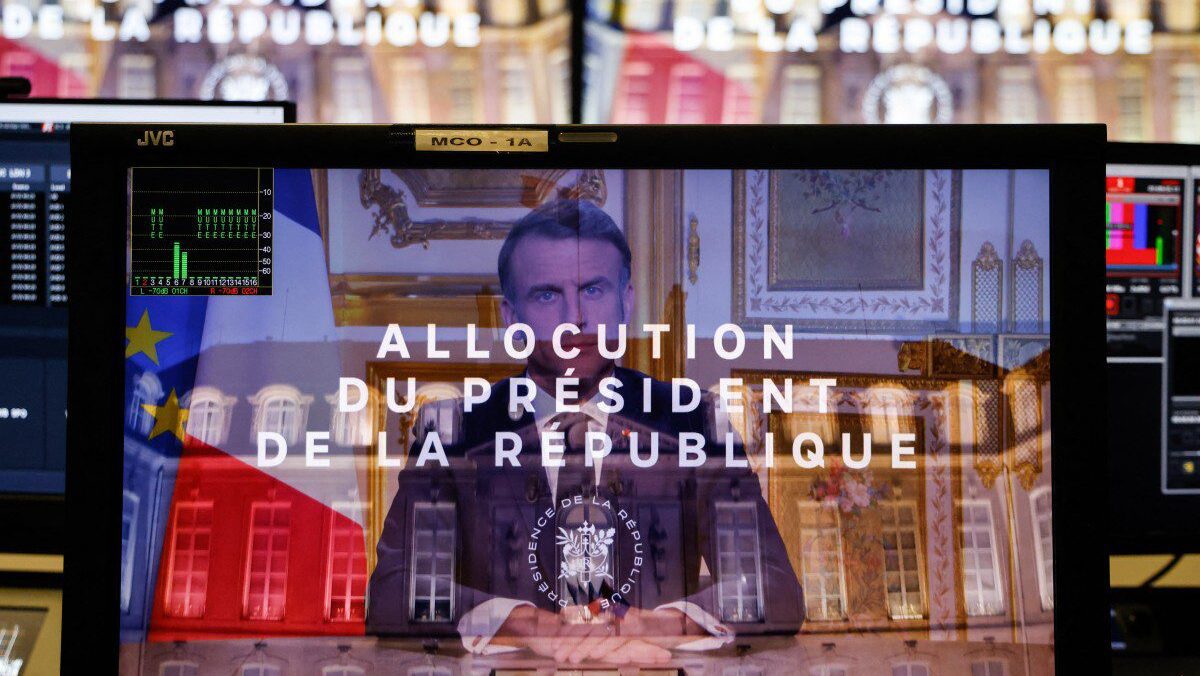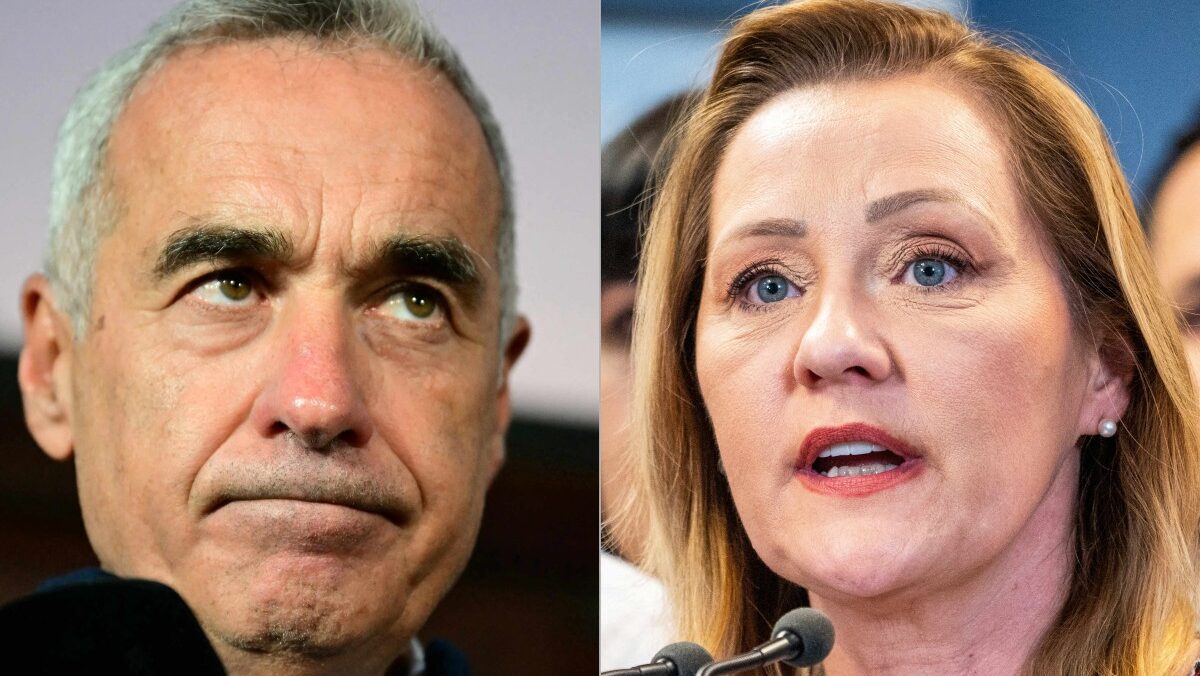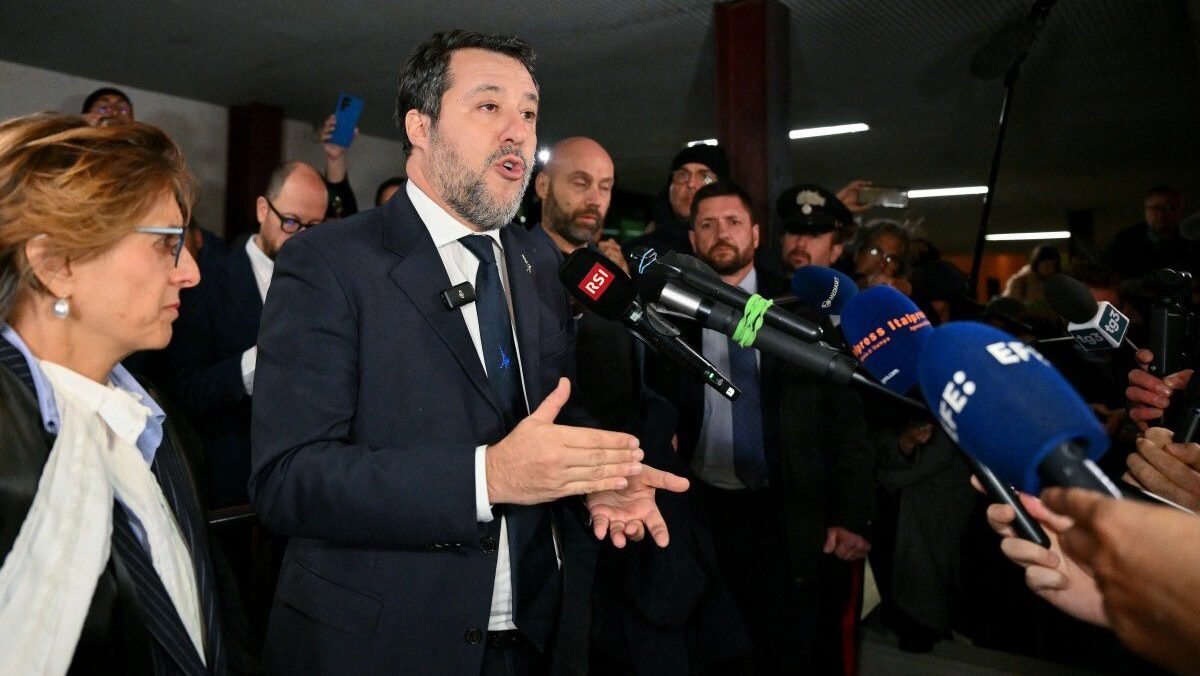Since the adoption of the motion of censure by the National Assembly on the evening of December 4th, France has been without a government—for an indefinite period. The time has come to analyse who is to blame, and despite President Macron’s misgivings, the irresponsible are not necessarily who we think they are.
After several weeks of crisis surrounding the vote on the budget for 2025, a motion of censure was passed with a majority of 331 votes, resulting in the toppling of Prime Minister Michel Barnier—a first since 1962. The head of government presented his resignation to the president on the morning of December 5th, who accepted it as is customary.
Emmanuel Macron is faced with the challenge of finding a new prime minister, having already had to battle for more than two months, after the legislative elections, to find a compromise candidate likely to suit the three blocks that share the National Assembly almost equally, preventing the formation of a lasting and solid majority.
On Friday, December 6th, consultations began at the Élysée Palace. The president announced that he wanted to receive representatives of all the political groupings deemed ‘respectable’, from the socialist Left to the centre-right represented by the Les Républicains party. Excluded from these discussions on the Right are the RN and its allies, and on the Left, Jean-Luc Mélenchon’s party, La France Insoumise (LFI), the architect of the victorious motion of censure.
A rift is forming within the Left. The greens and socialists, fed up with LFI’s outrages, are ready to compromise and would like to move closer to power. Olivier Faure, first secretary of the Socialist Party (PS), is now openly communicating in this direction: “We need a left-wing prime minister who leads a left-wing government open to compromise,” he explained, pledging not to censure a government that would, in exchange, renounce the use of Article 49.3 of the Constitution. Marine Tondelier, leader of the green party, called for “a moment of national unity.”
But things are not so simple. The governmental Right, present in Michel Barnier’s losing team, categorically refuses to work with the Left, as Bruno Retailleau, outgoing minister of the interior, explained. In an interview with Le Figaro on Thursday, December 5th, he said he was “ready to continue and complete his work” but ruled out working with “a left-wing prime minister.” Meanwhile, the Left is ready to compromise—on the condition the PM won’t be from the Right. The political deadlock is therefore still far from being lifted, and France certainly has long weeks of political inaction ahead of it.
In his televised address on the evening of Thursday, December 5th, President Macron adopted a tone of firmness and determination. He dismissed out of hand any possibility of resigning before the end of his term in spring 2027. He undertook to announce the name of the new prime minister within the next few days.
The president strongly condemned the “anti-republican front” that had led to the adoption of the motion of censure—in other words, the alliance of circumstance between the left-wing coalition of the Nouveau Front Populaire (NFP) and the Rassemblement National (RN). As Marine Le Pen rightly pointed out in an appearance on CNews on December 5th, this is a fine example of hypocrisy on the part of the head of state. It was his own party which, at the time of the legislative elections at the beginning of the summer, had no qualms about calling for an alliance with the NFP in order to defeat the RN and prevent it from obtaining a majority of deputies in the National Assembly—a ‘noble’ alliance then known as the ‘republican front.’ What was valid at the time to serve the interests of his camp—the alliance with the far Left—has become reprehensible as soon as it works against him.
How did we reach this deadlock? Two crises coexisted in the rejection of the budget and the toppling of the Barnier government: a political crisis and a financial crisis. The importance of the financial crisis—the French government’s deficit and its inability to redress public finances—must not overshadow the real crisis, which is political. It is not a mere question of a few euros granted for pensioners, as we may read in the press. It’s true that France still has no budget, and Barnier’s failure means that a return to a balanced budget will be put off indefinitely. But it would be an illusion to think that the budget devised by Barnier and his teams would have been the solution to all France’s problems, and that those who prevented its implementation are therefore irresponsible.
Marine Le Pen, speaking at the National Assembly on Wednesday, December 4th to defend the position of her parliamentary group, explained this very clearly. The national Right’s censure of Barnier’s budget is not an irresponsible whim. It is the logical sanction of a bankrupt policy obstinately pursued by corrupt ruling elites for 50 years.
Le Pen’s argument was above all political. “You have chosen to prolong the technocratic winter into which France has been plunged since the election of Emmanuel Macron in 2017,” blasted Marine Le Pen, speaking to Barnier. She denounced “the disconnection from democratic expectations; the verticality of decision-making; the refusal to respect the will of the French people in matters of migration, security, or taxation, or in matters of European policy—and this despite the clear results of the elections last June and July.”
She pointed out that the budget was in line with “the fifty budgets that preceded it: budgets of chronic deficit and waste that have taken our debt to an unprecedented level of €3,300 billion, the bill for which is invariably presented to the French people, who are summoned to mop up the mess.”
In the past, the RN was not sufficiently powerful or present in the National Assembly to make its own voice heard, but its observation has been the same for many years. Censure is the punishment for fifty years of policies that have drained the country of its substance, impoverished the French, robbed them of the desire to undertake and create wealth, and plunged them into insecurity and stagnation. With 11 million people voting for her in the last elections, Marine Le Pen has asked the same nagging question that she and so many other French people are asking: “Where does the money go?”
The passage of Barnier’s finance bill would have hypothetically reduced the deficit from an estimated 5.8% to 5.3%. But this was done “without direction or vision,” and at the cost of maintaining the illusion that things are going to get better when nothing has been fundamentally resolved. There’s a very telling expression in French to describe this situation: ‘mettre un cautère sur une jambe de bois’ (‘cauterising a wooden leg’).
European commentators are obsessed with deficit points. But the political crisis that is shaking France today cannot be summed up by a figure after the decimal point. Imagining that restoring the technocratic balance is the best thing to do, by entrusting the reins of the country to those who got it into the state it is in today, would be utterly dangerous.




